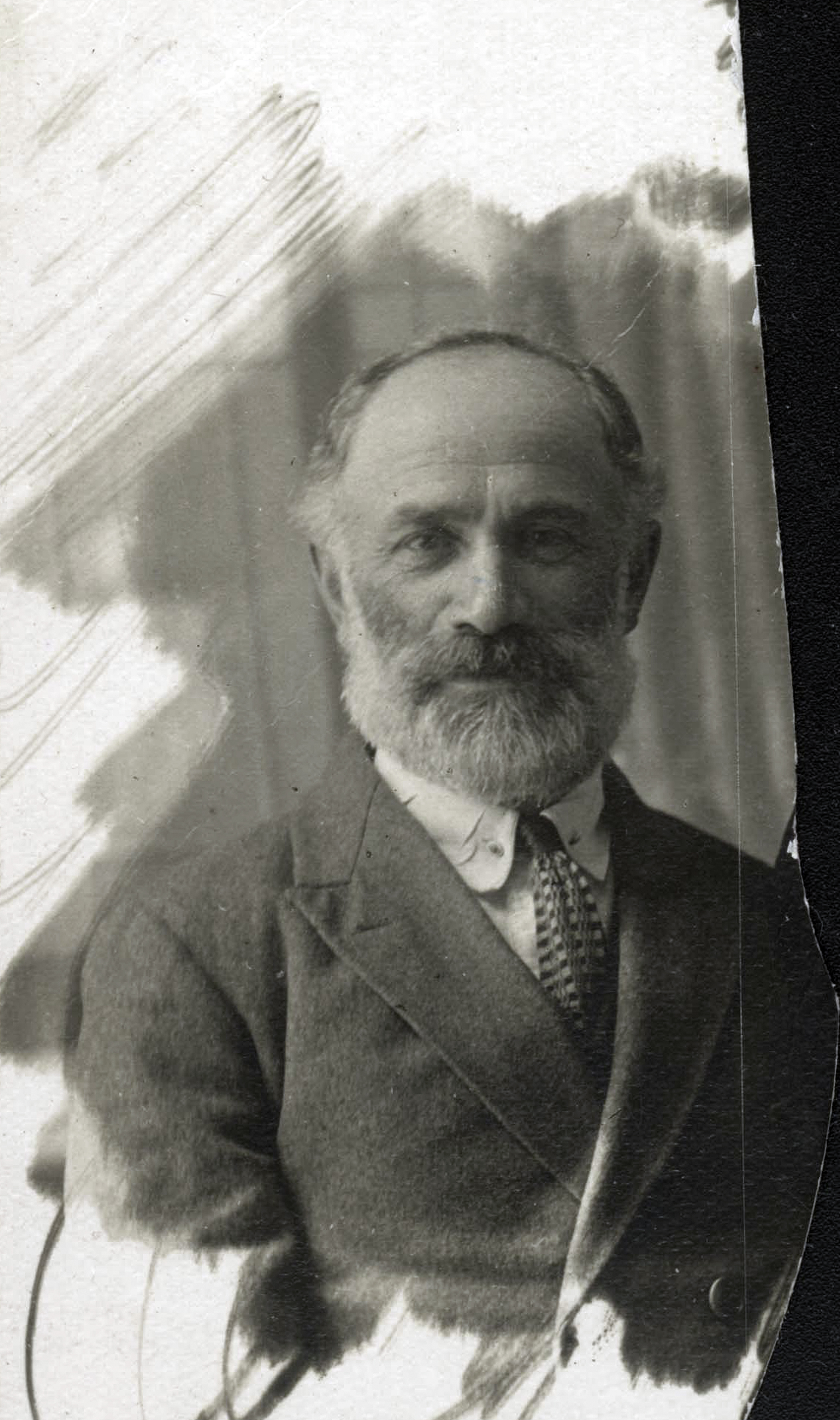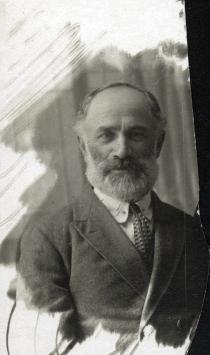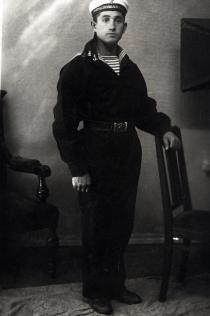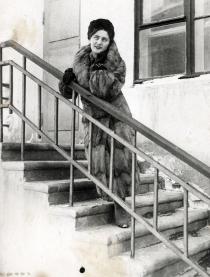Grandfather Zorakh Abramovich Zaretsky [the father of Valentina's mother Klara Vul] was from the family of Zaretsky.
People called him Zakhar Abramovich, or in the Jewish way - Zorakh Abramovich. He was born in 1870. The family was glorious due to the fact that great-great-grandfather was a "Tsar Nikolay's soldier" , and, because of that, his relatives could live in St. Petersburg.
In particular, they lived in 88 Nevsky Avenue, the windows faced the street, - all Grandfather's family lived there since 1929, and grandfather Zorakh himself - since 1927.
He married my grandmother, whose photo I, unfortunately, was unable to find. As much as grandfather was soft by nature, in the same degree Granny Faina was an imperious woman, and we, children, did not like her.
Mum took us to visit granddad [1930s]. More often it was by the summertime, probably, on Easter, by the time of my birthday, that's why I remembered. We came, we were very happy. Grandfather was a very respectable man.
He was a rabbi, a deep believer. And in my childhood, when I came for a visit, I saw how he performed the religious ceremonies. He sat down at a table, prayed, put on a striped tales with tsitsit brushes. Grandfather was praying, and if we misbehaved, he asked us to be quiet and listen to the prayer.
We understood Hebrew, but certainly, not all of it. And after that we were to kiss tsitsit brushes and say that we would be good and obeying children. Then grandfather had breakfast and went to the synagogue, not each day, but quite frequently.
Also he gathered young people around himself, it was all forbidden then, and was studying Jewish books with them. And he was telling a lot to us, too, especially about Moisei's precepts: don't steal, don't kill, be honest, and the like.
He put on a solemn suit and a tie. He wore a kipa, and he had a hat with wide brims, like hasids have. When he was going to the synagogue, he put it on.
They lived in a communal apartment. Grandfather Zorakh was a sociable man. He had a huge room, probably around 50 square meters, the largest in the flat. Some musicians also lived in the apartment. I remember the violin was always somewhere around.
Grandfather loved Jewish music and, among other things, spiritual music in general. With his neighbors he was always on good terms, grandmother wasn't so kind with people. They, too, had a violin [like Grandmother Tamara in Vladikavkaz], I remember that violin well, and it survived until now.
They had silver spoons, a silver ladle with Zaretsky's initials, and separately - the Easter kosher utensils. Grandfather, certainly, didn't eat anything "wrong", only the kosher food. He would go to the synagogue, there were special men called shoikhets there, who would cut gamebird according to special rules, he ate only the kosher food and taught us to do the same.
He must have loved me more then all the other kids. I can say that I loved him very much too and was solidary with him in everything. By origin he must have been from Belorussia, because from Belorussia he moved to Leningrad [1927].
He comes from some place near Kalinkovichi, because there he married my grandmother. Her surname was Gorelik. She was a perfect housewife, looked after herself very strictly.
She had 8 children, 4 sons and 4 daughters [Klara, Maryasya, Avraam, Konstantin, Tasya, Fima, Asya and the smallest boy died in early childhood]. But she was very severe, with difficult character. I communicated very little with her.
Only when we went in the summer to our summer residence in Belorussia, in Shokinki, on the bank of Berezina River, we had to be together and talk: we went to the woods, gathered mushrooms, - there were wonderful woods in the area before the war.
















